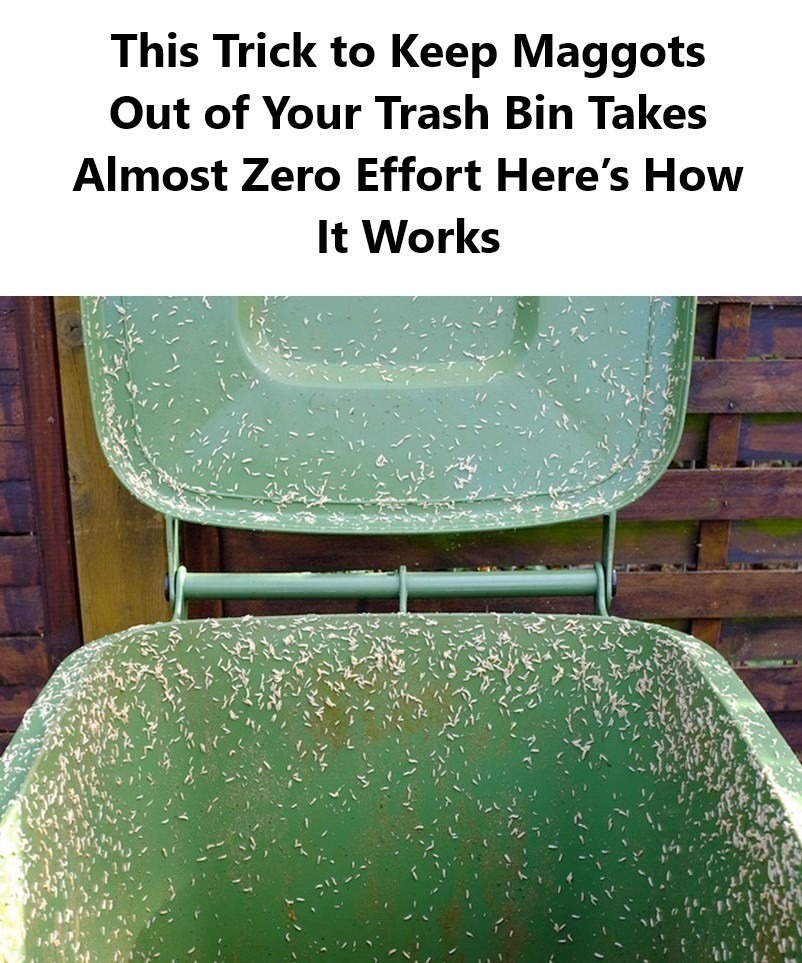ADVERTISEMENT
Maggots in the Trash Bin? Here’s How to Prevent Them
Maggots in your trash bin can be a gross and unpleasant surprise. While they are a natural part of the decomposition process, their presence can be both a nuisance and a health concern. Maggots are the larvae of flies, often attracted to decaying food and organic matter, and they can quickly take over your trash if not properly managed. Luckily, there are several proactive steps you can take to prevent maggots from making your trash their home.
In this article, we’ll cover practical tips for keeping maggots out of your trash bin, how to maintain a clean and odor-free waste system, and why it’s important to stay on top of waste management.
Why Maggots Appear in the Trash
Before diving into prevention methods, it’s helpful to understand why maggots appear in the first place. Maggots typically start as fly eggs laid on decaying food or organic waste. Flies are attracted to rotting food, meat scraps, or anything with a strong odor, and will lay their eggs in the trash. Once the eggs hatch, they become maggots, feeding on the decaying matter until they eventually turn into adult flies, continuing the cycle.
Maggots thrive in warm, damp, and unsanitary conditions, making your trash bin the perfect breeding ground if it’s not properly managed. This is particularly common in hot weather when food waste decomposes more quickly, and flies are more active.
How to Prevent Maggots in Your Trash Bin
The good news is that you can prevent maggots from infesting your trash bin with a few simple steps. By taking a proactive approach to waste management, you can reduce the likelihood of encountering maggots and maintain a cleaner, healthier trash system.
1. Seal Your Trash Bag Properly
One of the easiest ways to prevent maggots from getting into your trash bin is to seal your trash bags tightly before tossing them into the bin. Make sure there are no holes or openings where flies could potentially lay eggs. Use strong, durable trash bags and double-bag items if needed, especially when discarding food scraps.
2. Keep Food Scraps Contained
Food waste is the main attraction for flies, so it’s important to handle it properly. If you have organic waste such as meat, fruits, or vegetables, try to seal them in a separate bag before placing them in the trash. You can even consider using compost bins for organic waste if possible, or freeze food scraps until garbage collection day to minimize the risk of attracting flies.
For Complete Cooking STEPS Please Head On Over To Next Page Or Open button (>) and don’t forget to SHARE with your Facebook friends
ADVERTISEMENT
ADVERTISEMENT
